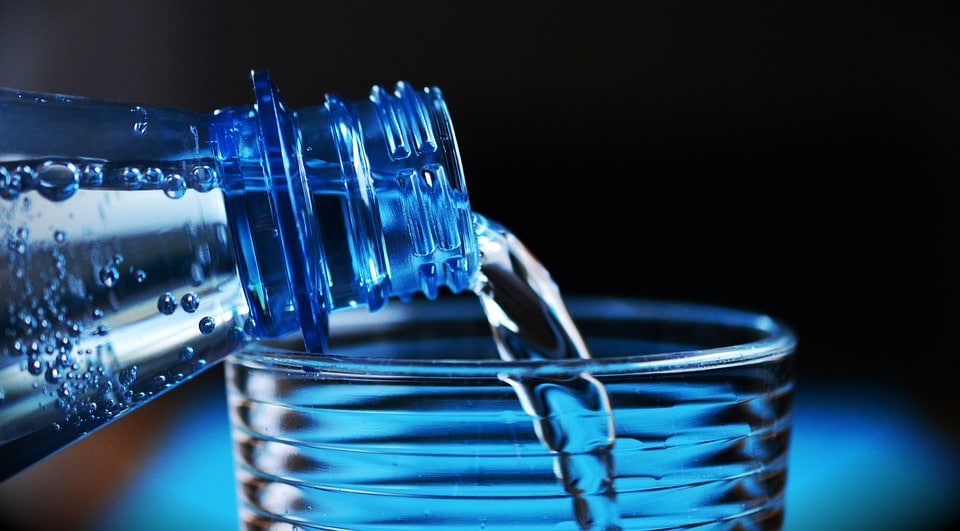Thick water is a safe and effective approach to staying hydrated for the more than 13 million Americans who have difficulty swallowing. It is possible to reduce the risk of coughing, choking, and aspiration pneumonia by increasing the viscosity of thin liquids such as tap water, juice, or soda. The 50 pairs of muscles and nerves that assist you in swallowing endure wear and tear as you get older. These changes might induce muscular atrophy over time, making it harder to swallow food or liquids. Consumption is made more accessible and more convenient using thickening agents.
What is thick water?
Thick water is a beverage made especially for persons who have trouble swallowing (difficulty swallowing). You can buy pre-thickened water or use over-the-counter thickening agents to thicken drinking water at home. The viscosity of thin liquids, such as water, can be increased to make them easier to swallow. Thick water is ideal for seniors with a sensitive gag reflex or neurological conditions that make eating and drinking difficult. Furthermore, it keeps liquid out of the trachea, allowing better digestion and more enjoyable mealtimes.
The only difference between thickened water and regular tap or bottled water is the consistency. Many people relate it to aloe vera gel in terms of viscosity.
What does thickened water taste like?
The flavor of thickened water is generally created with an artificial ingredient, but natural materials can also be used. Fermented sugar and gum are two examples. These, on the other hand, can be tough to blend and clump, and they’re usually made of vegetable oils and have high sugar and cholesterol levels. Before choosing the most outstanding thickening agent, think about your loved ones’ tastes and preferences.
Although thickened water is easy to pour and swallow, the texture is notably chunkier. Due to the chemicals in thickened water, many people become full faster than otherwise. Start with tiny glasses to make the shift from thin to thick fluids as easy as possible. You might also add flavor enhancers like lemon juice or stevia.
Health benefits of thickened water
Here are the health benefits of thickened water:
- Individuals with dysphagia typically utilize thickened liquids to increase their capacity to safely swallow liquids in the hopes of avoiding aspiration, pneumonia, and death.
- Although not statistically significant, consuming the thinner nectar-thick beverages was linked to a decreased risk of pneumonia than drinking the thicker honey-thick liquids.
- Thickened water is frequently a better option for folks who have difficulty swallowing, in addition, to tasting delicious.
- Thickened drinks can be tastier as well as being a practical option. However, don’t use too much because it can leave an unpleasant aftertaste.
- Most of what we know about the benefits of thickened beverages comes from the bedside or videofluoroscopic evaluations that evaluate aspiration risk.
How to make thick water?
Patients with dysphagia can benefit from thickening liquids and foods to help them eat foods like mashed potatoes or soup. People on the run who need fluids to linger in their mouth a bit longer before being swallowed have something called “thickening powder,” which you can purchase at most pharmacies, grocery stores, and even Walgreens. Transparent DysphagiAide Quick Beverage and Food Thickener Powder is a clear instant beverage thickener thicker milk or water.
After mixing it with an equivalent amount of liquid, the combination will last for 24 hours in the fridge, allowing you to create up to three servings at once if needed. One serving contains 12 grams of protein, ideal for people trying to bulk up their muscles. It also contains no sugar or artificial ingredients, making it ideal for diet.
To thicken water, many compounds are utilized, which can be classified as follows:
Starch thickeners
Starch is a flavorless white powder derived from grains that dissolve quickly in liquids. Starch-based thickeners can be easily taken when mixed with liquids, but only if consumed as soon as mixed. When starch-thickened liquids are left to sit for too long, they become chunky and difficult to swallow.
Gum thickeners
Gum thickeners are artificial additions used to thicken the water, and vegetable oils or animal fats are commonly used to make them. Gum arabic, xanthan gum, guar gum, carrageenan, and sodium alginate, for example, maybe high in cholesterol and sugar. When looking for the most outstanding water thickeners, keep your loved one’s preferences and tastes in mind. You may need to try various items before finding one that suits their requirements.
Where to buy thick water?
Thick water products can be found in various places, and they’re available in a variety of pharmacies, retailers, and online. People with IBS should be aware that some thickeners include maltodextrin, which can induce bloating, gas, or diarrhea (irritable bowel syndrome). Many commercial kinds are enriched with vitamins and minerals like potassium and calcium, so check to see if you’re sensitive to any of those. There are no other known risks associated with using these products other than this one.
Conclusion
It is hard to drink in most cases and isn’t very pleasant for the palate. Nevertheless, it is an essential part of your diet, so you should avoid it. Many foods are rich in vitamins and minerals, and it is essential to avoid food containing excessive amounts of sugar. It is recommended that you keep a glass of water in the refrigerator at all times and soak it in milk to avoid the unpleasant aftertaste.
The flavor of thicker water is similar to that of conventional drinking water. On the other hand, some folks may prefer thicker versions of their favorite drinks because they feel more gratifying and are easier on the stomach. By adding a thickener agent, you can produce your own thickened beverages. If you’re having problems swallowing, a thicker drink or two might help.
